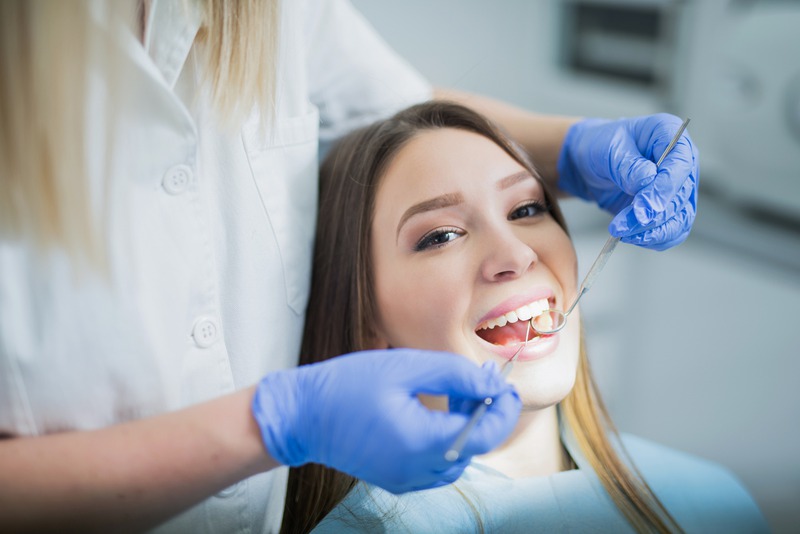Oral health is often misunderstood, leading to various misconceptions that impact how people care for their teeth and gums. Understanding the truth behind these myths can significantly improve dental hygiene practices and prevent potential issues. This article dispels some of the common fallacies and provides guidance on maintaining optimal oral health. Through clear explanations and practical solutions, readers can navigate the complexities of dental care with confidence.
Addressing Common Misconceptions About Oral Health
Diving into oral health misconceptions helps clarify what’s true and false, encouraging better care and dental health. Let’s look at some widespread myths and why they’re incorrect.
Misconceptions about Brushing Techniques
A common belief is that brushing harder results in cleaner teeth. In truth, vigorous brushing can harm enamel and gums, leading to sensitivity and potential gum recession. The focus should be on technique rather than pressure. A soft-bristled toothbrush with gentle, circular motions is effective in removing plaque without causing damage.
Bleeding Gums Signify Normalcy
Bleeding gums during brushing or flossing might seem normal but often indicate gingivitis, an early stage of gum disease. Without treatment, gingivitis can progress to periodontitis, a more severe condition. Professional cleanings and proper oral care are vital to prevent the advancement of gum diseases. Regular appointments with dental professionals can help maintain healthy gums and teeth.
Mouthwash Over Brushing and Flossing
Many believe mouthwash can substitute brushing or flossing, but this is a misconception. While mouthwash can help freshen breath, it doesn’t remove plaque like brushing and flossing. These activities are crucial for effective oral hygiene. Mouthwash should be a supplementary part of the routine rather than the main component.
Sugar and Cavities Clarified
A widely held notion is that sugar directly causes cavities. Cavities are caused by acid produced by bacteria that consume sugars. Thus, while sugar can increase the risk, it’s the acid that leads to decay. Maintaining an oral hygiene routine is essential for preventing cavities regardless of sugar intake.
Whiter Teeth Do Not Mean Healthier Teeth
White teeth are often equated with healthy teeth, but their appearance doesn’t always reflect internal health. Teeth might look bright while underlying issues like cavities or gum diseases persist. It is important to have regular dental appointments to ensure all potential problems are identified and addressed, which involves keeping regular appointments for dental cleaning & exams in Bethlehem with professionals who can assess oral health comprehensively.
Diet and Oral Health
The impact of diet on oral health is significant, yet there are myths about which foods contribute positively or negatively. Clarifying these myths can aid in maintaining a healthful diet that supports oral health.
-
Misconception: Only sugary foods harm teeth. Truth: Acidic foods and drinks can also erode enamel, leading to sensitivity and decay.
-
Misconception: Chewing sugar-free gum is a replacement for brushing. Truth: It may stimulate saliva but won’t clean teeth like brushing.
-
Misconception: Dairy is harmful. Truth: Dairy products provide calcium and phosphates that strengthen enamel.
Myths Across Different Ages
Oral health misconceptions vary by age group, with myths affecting children’s, adults’, and seniors’ dental care. Recognizing and addressing these can ensure better care across all life stages.
Children’s Dental Health Myths
-
Baby teeth are insignificant since they’re temporary. In fact, they influence speech development and the growth of permanent teeth.
-
Dental visits aren’t necessary until school age. Early visits prevent issues and help establish good habits.
-
Flossing isn’t necessary for children if they brush thoroughly. Flossing is crucial for removing plaque between teeth regardless of age.
Ensuring children’s dental care is prioritized involves considering expert services like pediatric dental care in Bethlehem PA, where professionals provide early intervention and guidance for lifelong dental health. Establishing good oral care habits from an early age ensures children’s comfort and confidence in dental care.
Adults’ Dental Health Misconceptions
-
All dental issues are visible without professional check-ups. Some problems are detectable only by professionals.
-
Dental appointments are only for when there’s pain. Regular check-ups can detect problems early and prevent pain.
-
Adults are destined to lose teeth eventually. With proper care and regular dental visits, natural teeth can be preserved for a lifetime.
Regular visits to professionals for dentist services in Bethlehem help prevent potential problems and ensure long-term oral health, encouraging a proactive approach to dental care.
Seniors’ Dental Health Misperceptions
A common belief is that tooth loss is inevitable with aging. While older adults face specific challenges, maintaining good oral care and keeping up with dental appointments can preserve teeth and gums well into later life. Dental problems like gum disease and tooth decay are not unavoidable if regular check-ups and good oral hygiene are maintained.
Gender and Oral Health
Gender is often mistakenly believed to affect oral health needs. Oral health varies based on lifestyle, habits, and genetics rather than gender. However, pregnancy can affect a woman’s oral health due to hormonal changes, emphasizing the importance of attentive care and check-ups during this period.
Natural Remedies and Effectiveness
Many are drawn to natural remedies for oral health, but these solutions often lack scientific support. While they might relieve minor discomfort, they shouldn’t replace professional dental care. Consulting with dental professionals ensures any issue is addressed safely and appropriately.
Purposes Beyond Aesthetics in Orthodontics
Some perceive orthodontics as solely aesthetic. However, treatments like braces can assist with bite improvement and better oral hygiene by facilitating easier cleaning. Properly aligned teeth reduce the risk of cavities and gum disease. Orthodontic care supports dental health comprehensively, beyond just enhancing appearance.
Closing Remarks
Understanding oral health misconceptions leads to better care and informed decisions. Dispelling myths encourages a strong commitment to proper dental practices, allowing individuals to maintain lasting smiles with confidence. Prioritizing professional care by staying informed ensures a proactive stance on oral health, benefiting everyone at every life stage.

